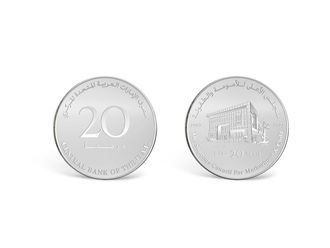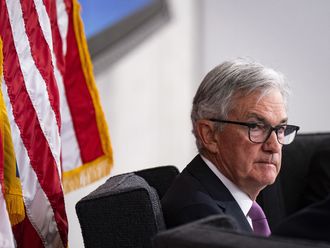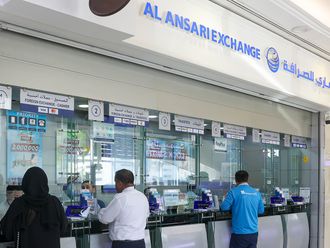Abu Dhabi : Abu Dhabi may find it cheaper to borrow with Islamic bonds than non-Sharia compliant securities, National Bank of Abu Dhabi and EFG-Hermes UAE Ltd say.
The yield on the emirate's 5.5 per cent dollar-denominated non-Islamic note due April 2014 fell 3 basis points, or 0.03 percentage point, last week to 2.32 per cent on March 11, the lowest in a month on speculation the UAE will be spared from protests.
The yield on neighbouring Dubai's 6.396 per cent sukuk maturing in Nov-ember 2014 was at 6.23 per cent, data compiled by Bloomberg show.
Abu Dhabi may sell $1.5 billion in bonds this year, its first international securities since April 2009, to create a longer maturity benchmark, Standard Chartered said in a March 7 report. The government met investors in Asia from Monday to brief them on the emirate's economy and budget, an official said March 9.
"For a high-quality name to come out with a sukuk is quite a rarity, so I expect acceptance would be exceptionally good," Mark Watts, head of fixed-income at National Bank of Abu Dhabi's asset management group, said in a telephone interview March 11.
"It's entirely possible to see an Abu Dhabi government sukuk issue coming at lower yields than a similar conventional issue. As investors in a sukuk market, we would welcome the opportunity to buy Abu Dhabi government."
Meetings in Beijing
Abu Dhabi government officials will meet fixed-income investors in Beijing, Hong Kong and Singapore, the government official said on condition of anonymity. Standard Chartered is arranging the meetings and the sit-downs with investors aren't related to an immediate transaction, according to the official.
The meetings in Asia follow those held in Europe and the US last year. The emirate last sold bonds in April 2009, when it raised $3 billion (Dh11.02 billion) from five-year and ten-year securities. The 2014 bonds yielded 116 basis points, or 1.16 percentage points, more than similar-maturity Treasuries March 11, compared with 400 when the notes were priced. The gap reached this year's low of 86 basis points February 11.
"A sukuk would tend to come tighter as demand could be higher," said Dubai-based Rawad Hakme, a portfolio manager at EFG-Hermes UAE, a part of Egypt's largest publicly traded investment bank, said in an e-mailed response to questions. "A sukuk issue would cater to both sukuk and conventional players while conventional issue would only cater for non-Islamic buyers."
Fixed-income assets
The Cairo-based bank has $2.5 billion of fixed-income assets under management in the Middle East and North Africa.
Abu Dhabi is rated Aa2 by Moody's Investors Service and AA by Standard & Poor's, the third-highest investment grade rankings. Qatar's 4 per cent dollar bond maturing in January 2015, similarly rated by Moody's and S&P, yielded 3.16 per cent March 11.












